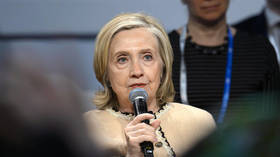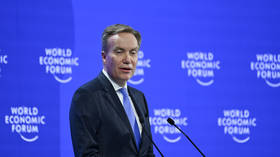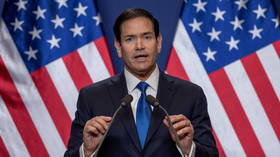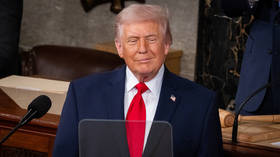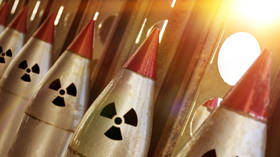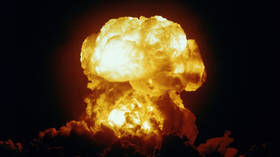America’s crusade ‘utterly utopian’ - Pat Buchanan
Islamic wars have brought questionable benefit to the US over the last 20 years, former US presidential advisor Pat Buchanan, author of Suicide of a Superpower, shared with RT.
A new war in the Middle East will be a disaster for the US and for the world economy, he says. “I opposed the Desert Storm operation in 1991 cleaning Saddam Hussein out of Kuwait because, I said, ‘This would only be the first Arab-American war.’”Looking at the number of conflicts in the Islam world that America is taking part in now, one cannot but admit that Buchanan was right 20 years ago.“You cannot replicate the Middle West in the Middle East,” Pat Buchanan concluded.From the time of the Cold War the US has military bases all over the world.Today, running a budget deficit of 10 per cent of its GDP, America simply cannot afford to continue “to carry this enormous burden, defending 40 or 50 countries around the world,” Buchanan says, “We have to bring troops home.”Getting rid of these bases essentially means dismantling the American Empire to help the US survive beyond 2025.America’s crusade under the banner of ending tyranny in the world is “utterly utopian”.“What the US should do in its foreign policy is to build a defense establishment strong enough to protect our vital interests and vital allies,” he says. “When problem arises in Zimbabwe or somewhere else – the people there have got to deal with their own problems.”Pat Buchanan truly believes that, as long as those regimes do not threaten America’s vital interests or threaten and kill Americans, “The fact that they rule or misrule certain countries is none of our business.”Pat Buchanan believes no American wants to intervene in Syria “they don’t understand anything about.”
US has no vital interests in Syria
Speaking about the deadlock situation in Syria, the author shared that since President Bashar Assad was ruthless in suppressing the uprising in the country – he had better go and let the country have a more democratic government.Actually, the US does not have vital interests in Syria, Pat Buchanan told RT.The real Syrian question is: if the Assad regime is overthrown, “who comes to power in Damascus?” questions Buchanan.The Muslim Brotherhood and Al-Qaeda that are infiltrating into Syria will bring nothing good in the region for the US.“We’ve got to ask ourselves: is the devil we know preferable to the devil we don’t know?”Al-Qaeda is doing its best and it always finds ‘failed states’ like Yemen, Somalia and Afghanistan under the Taliban to prey on it and civil war in Syria seems to be a good environment for terrorists.According to Buchanan, Syria is a potential disaster where the world might have a proxy war between Sunni and Shia Muslims, with ethnic conflicts Kurds and Druze on the way.“This is why I’m against putting weapons and aiding the anti-Assad resistance” Buchanan said, explaining that taking sides in the conflict might end up with failed state in Syria.
“There are a number of people that want a war in Iran”
Commenting on the Iranian nuclear program, Pat Buchanan said there are neo-cons and Israel lobby politicians in the US that support Tel Aviv’s wishes for America to smash Iranian nuclear facilities.“There are many Americans that generally believe that Iran is moving toward a nuclear weapon and, if it is, they would favor a military action to prevent it,” he said, though he refused to acknowledge that Iran is a nuclear threat.Pat Buchanan recalled the Cuban missile crisis, when the US and the USSR had thousands of weapons “to destroy each other in the afternoon” and that was “genuinely terrifying.”Today’s Iran has neither the nuclear bomb, nor the means of delivering it.“Iran does not frighten me and it should not frighten the American people,” Buchanan declared, while “Israelis have 300 atomic bombs. Who presents the existential threat to whom?”But Iran’s ayatollahs and President Mahmoud Ahmadinejad “always help hawks with some insane statements every couple of months” and if Iran destroys someone the US will have to get on the case, said Buchanan.


